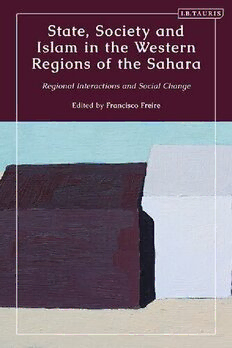
State, Society and Islam in the Western Regions of the Sahara: Regional Interactions and Social Change PDF
377 Pages·2022·6.066 MB·English
Most books are stored in the elastic cloud where traffic is expensive. For this reason, we have a limit on daily download.
Preview State, Society and Islam in the Western Regions of the Sahara: Regional Interactions and Social Change
Description:
This open access book takes a deeper and broader perspective of the Hassaniya-speaking peoples’ struggle for self-determination in the Western Sahara. There has been a surge of interest in the Western Sahara, often centred around sensationalist news reports and policy briefs on these groups. But in-depth understanding and analysis remains neglected and little work has been undertaken on the diverse experiences of the Hassaniya and the contrasting political regimes under which they live. The contributors here focus on the complex and ambiguous relations between statehood, Islam, nation building and identity formation in hassanophone northwest Africa, ranging from southern Morocco, the Western Sahara and Mauritania to Algeria. The book brings new analysis and up-to-date fieldwork to provide an ‘inside perspective’ on these populations and their regional interactions, with contributions from the fields of law, history, politics, gender studies and media studies and the research of scholars from both the global North and global South. This interdisciplinary collection shows how urban ways of life are being adopted, with the Hassaniya-speaking peoples adapting to state-administered social policies and new modes of settling territorial disputes and legal claims. In doing so, the book sheds new light on the region’s shifting social hierarchies, the new gendered power dynamics, and generational changes in the re-interpretation of ‘tradition’.As well as displaying that the Western Sahara’s Hassanophone are pivotal to the development of a specific tribal-based political culture and language, the book reveals the close association they have with Islam, both as a religious expression as well as a cultural marker. It is a much-needed contribution to work on the intersections of politics, Islam and identity in hassanophone northwest Africa.
See more
The list of books you might like
Most books are stored in the elastic cloud where traffic is expensive. For this reason, we have a limit on daily download.
